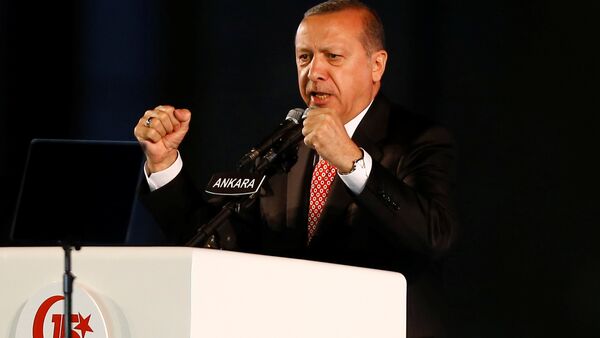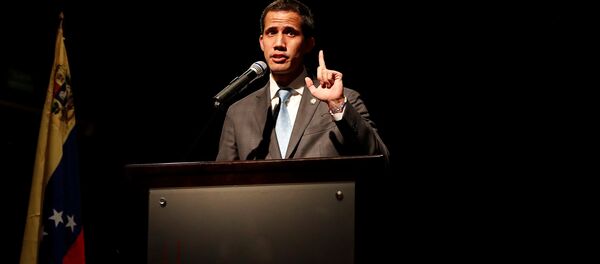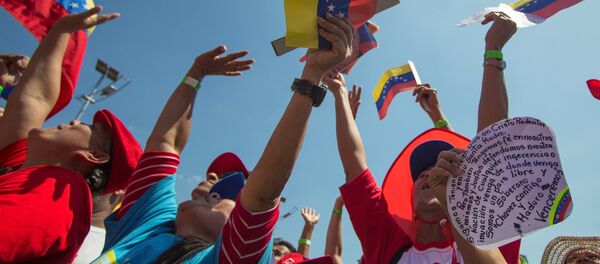"No one fled from Venezuela to seek refuge in my country. This is not true. Guaido is not the elected leader. If he says things like this, this is because he does not know Turkey," Erdogan said in an interview with the NTV broadcaster.
On 22 February, Guaido arrived in the Colombian border city of Cucuta, where so-called humanitarian aid from the United States and a number of other countries was being collected, in order to help deliver the supplies to Venezuela despite the fact that the government refused to accept the aid. While the attempt to forcefully bring the aid into Venezuela failed, Guaido stayed in Colombia to take part in Monday's meeting of the Lima Group in Bogota. Guaido announced on Monday that he intends to return to Venezuela this week.
READ MORE: US Humanitarian Convoy for Venezuela Contained Expired Goods — Ambassador
On Tuesday Deputy Judge of the Venezuelan Supreme Tribunal of Justice Juan Carlos Valdez told Sputnik that Guaido could face a significant term in prison after his return to Venezuela from Colombia, where he traveled in defiance of the travel ban imposed earlier by the Venezuelan Supreme Court.
At the same time, Guaido, who is currently in Colombia, told Colombian broadcaster NTN24 that he was going to return to Venezuela, despite the risk of being arrested.
On 5 January, Guaido was elected as president of the Venezuelan opposition-run National Assembly, whose authority has not been recognized by any other branch of power since 2016.
READ MORE: US Preparing for Military Incursion in Venezuela — Moscow
On 23 January, days after the Supreme Court nullified Guaido's election as the National Assembly's head, the opposition leader proclaimed himself Venezuelan interim president.
The United States and around 50 other countries have endorsed the opposition leader as the Venezuelan acting president.
China, Russia, and Turkey, along with a number of other countries, have voiced their support for Maduro's legitimate government. Mexico and Uruguay, in turn, have refused to back Guaido and declared themselves neutral, promoting dialogue as a means to resolve the crisis in the country.




